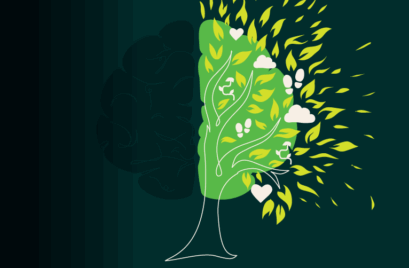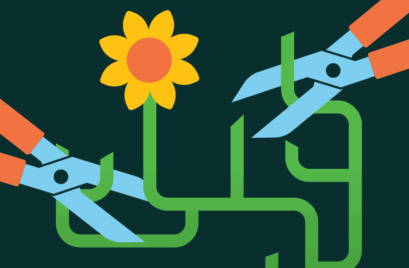
Curiosity and empathy are familiar terms in personal and leadership development. It could be argued that, to a degree, curiosity facilitates the practice of empathy. By asking open and compassionate questions, we are also opening our minds and hearts to the validity of another person’s experience, e.g., How are you feeling? How can I support you?
According to Gallup, being heard and valued, along with the opportunity to grow, develop a sense of trust, feel pride, and be challenged, constitute the needs of most people in the workplace. And when our needs are met, we are more highly engaged.
Leaders who display emotional synchrony i.e., they are synchronised with others at the micro-social level, by using curiosity and empathy, are seen to be well attuned to their teams. Attunement is characterised by “the affective way a human is sensitive to the demands of a situation.” Think of a boxer punching a bag. While they are responding to what’s in front of them by choosing a jab, uppercut, or roundhouse, they may also be listening to their coach who is giving tips and suggestions. Their ability to judge, adapt, and adjust in the moment is dependent on their skill at attuning to a number of changing stimuli.
In the workplace, having high levels of attunement enhances all aspects of our coaching, mentoring, leading, and decision-making. However, it’s not only about attuning to people, but also to environments and the needs of certain situations. When we attune well, we can adapt our action/response in the moment to synchronise with the immediate needs – in the same way a boxer does.
So, how do we learn to attune?
The Science of Attunement
According to Polyvagal Theory, attunement ‘involves a heartfelt connection with another human being that is manifested in the behavioural features of the social engagement system.’ The theory argues that there is a physiological basis to how we act and react because the autonomic system exists in one of three states. The green light, or social engagement zone, is the optimum state for maintaining well-being. When we’re in the green zone, we can show and accept empathy, and be curious and open-minded. If we are not in the green zone, we are either in fright or flight (amber zone) or shut down (red zone).
Every day as we interact with others, our neuroceptors scan constantly to estimate our threat level, and to shift us to the right vagal zone. This occurs even when we’re with people we know. It’s an entirely automatic and primitive function that will always err on the side of caution.
The Attuned Leader
As leaders, it can be helpful to recognise our current vagal zone and also read it in others. For example, defensive or disruptive behaviour from team members may be a sign they have crossed into the amber (fight or flight) zone in reaction to an unconsciously perceived threat. In this situation, staying attuned to their emotional state will allow us to give more appropriate responses.
The attuned leader looks to be synced and aligned by:
- Being aware and present
- Being able to give their attention to the other person by mirroring them and listening deeply
- Being curious and seeking clarity
Equipped with these attributes, we will read the room (including the virtual room) better, noticing the small cues and tells that we might otherwise overlook. This also enables us to manage levels of psychological safety in our teams, so we can get closer to being able to give and receive open and honest feedback.
Recent studies in “metastable attunement” suggest that highly attuned people creatively manage life events with a mix of stability and flexibility that allows them to deal with many variables. Their readiness to engage with multiple situations, stimuli, or inputs, allows them to adapt to the needs of the moment.
Attunement also demands that we are ethically relational with others, and this is where the adaptive leadership skill of Perspective Setting is engaged. Perspective Setting requires an understanding of the inherent biases, assumptions, and judgments we carry within us. Being ethically relational means we can step around ourselves and attempt to perceive another’s perspective. And, central to this ethical state, is the ability to notice and listen.
Noticing
Roadblocks to listening may be as simple as inattention, or as complex as experiencing intellectual rather than emotional empathy. But the engine that drives attunement is noticing. Research shows that leaders regularly miss critical information that they could easily retrieve because their focus misdirects them, people mislead them, or their cognitive biases create blind spots.
The simplest way to circumvent those pitfalls circles back to developing a habit of curious questions.
- How can I collect information differently?
- How might my own world view interfere with my focus?
- To where does my attention naturally gravitate?
Looking for what is missing, sometimes helps us see what is right under our nose.
Self-Attunement
Self-attunement is the precursor skill to attunement to others and situations. It is a way to tap into the energy wellsprings within us, to locate our inner strength, and achieve clarity. It is difficult to become attuned to others when we are tone-deaf to our own inner context and conversations.
Useful ways to ground ourselves and develop more self-awareness are as simple and as effective as taking the time to self-check in. How often do we stop – really stop – to understand our feelings beyond the superficial and the immediate? Being “still” in body and thought opens us up to the driving factors that are operating beneath the surface.
Because our ego works to protect us from aspects of our thoughts that we don’t wish to recognise, acknowledging those thoughts is a powerful way to diffuse the tension they cause within us.
Finally, self-attunement is a muscle that can be strengthened through exercise, beginning with listening to and learning about ourselves. Ask yourself:
- What can I let go of, to let come?
- How can I get better at being curious?
- What will help me suspend judgment?
You’ll be surprised by what you learn. And even more surprised at the impact it has on your team. Knowing that you are noticing, hearing, and valuing them will almost certainly lead to high levels of trust and motivation.
Need More Help?
Keen to find out more about the power of attunement? Performance Frontiers help guide leaders to adapt and evolve into new ways of being, living, and working. Speak to us today about how we can partner with you to hone your attunement muscles and breed higher levels of trust and motivation in your teams.
While every effort has been made to provide valuable, useful information in this publication, this organisation and any related suppliers or associated companies accept no responsibility or any form of liability from reliance upon or use of its contents. Any suggestions should be considered carefully within your own particular circumstances, as they are intended as general information only.







